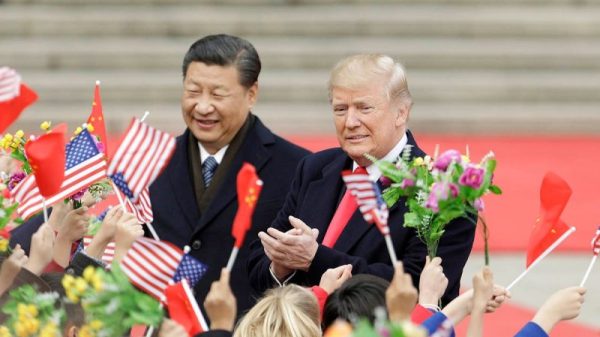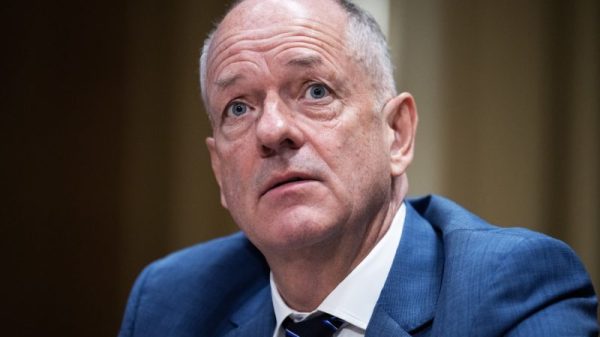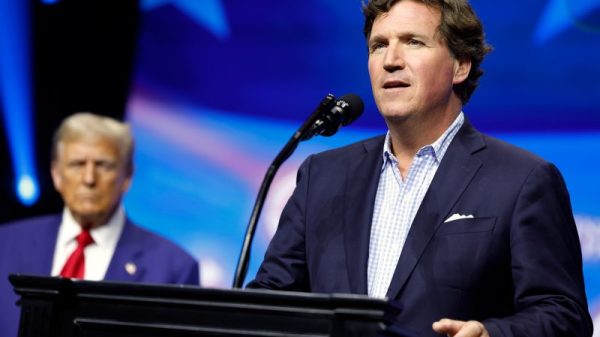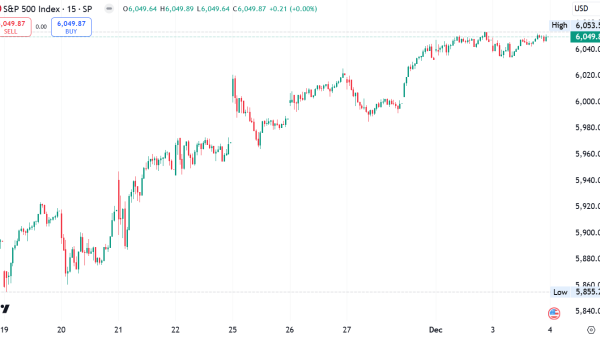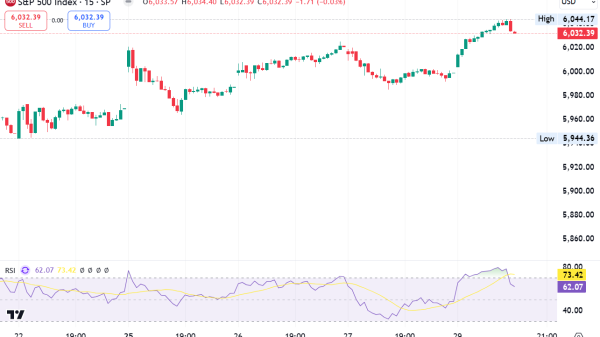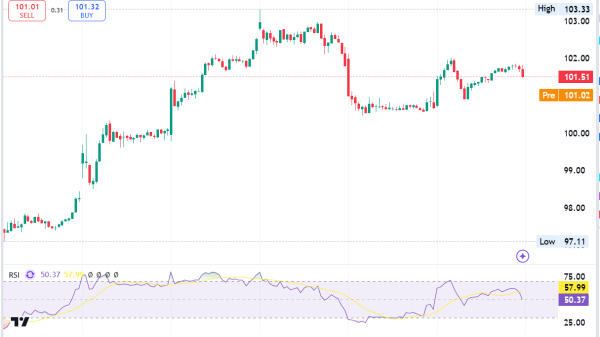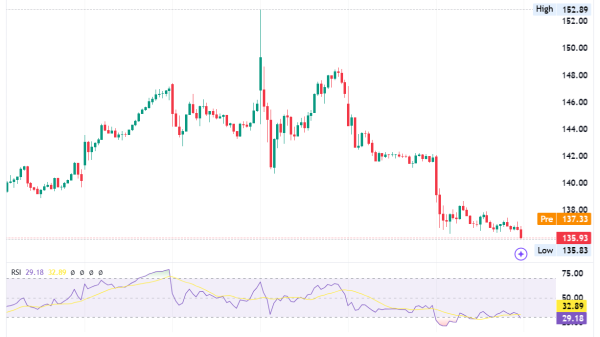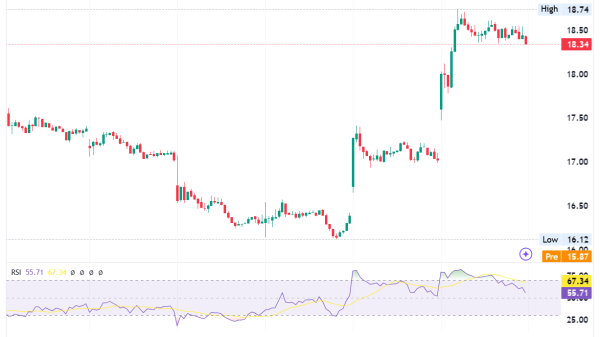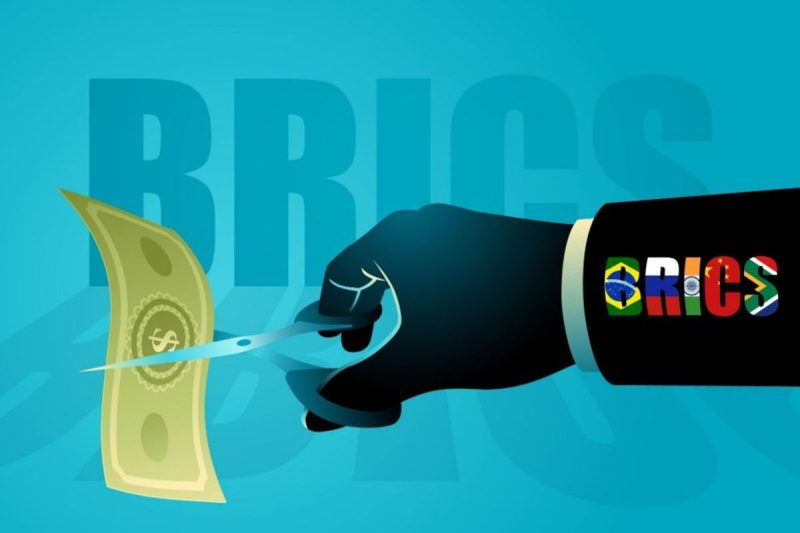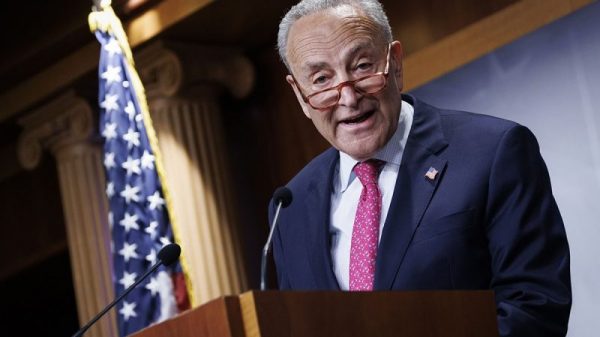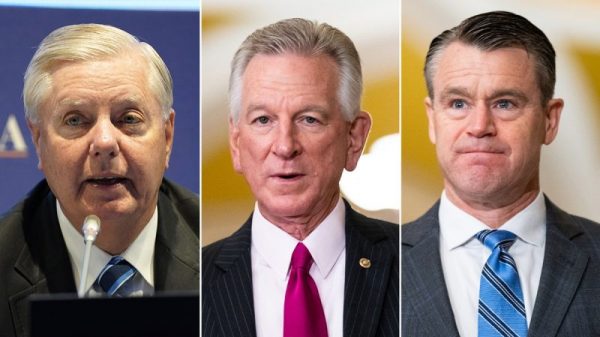The BRICS nations, comprised of Brazil, Russia, India, China and South Africa, are looking to establish a new reserve currency backed by a basket of their respective currencies.
The potential currency, while still under review and development, would allow these nations to assert their economic independence while competing with the existing international financial system. The current system is dominated by the US dollar, which accounts for about 90 percent of all currency trading. Until recently, nearly 100 percent of oil trading was conducted in US dollars; however, in 2023 one-fifth of oil trades were reportedly made using non-US dollar currencies.
Central to this ongoing situation is the US trade war with China, as well as US sanctions on China and Russia. Should the BRICS nations establish a new reserve currency, it would likely significantly impact the US dollar, potentially leading to a decline in demand. In turn, this would have implications for the US and global economies.
Let’s look at the emerging BRICS currency and its potential implications for investors.
Why do the BRICS nations want to create a new currency?
The BRICS nations have a slew of reasons for wanting to set up a new currency. Recent global financial challenges and aggressive US foreign policies have prompted the BRICS countries to explore the possibility. They want to better serve their own economic interests while reducing global dependence on the US dollar and the euro.
What progress has been made? During the 14th BRICS Summit, held in mid-2022, Russian President Vladimir Putin said the BRICS countries plan to issue a ‘new global reserve currency,’ and are ready to work openly with all fair partners.
In April 2023, Brazilian President Luiz Inacio Lula da Silva showed support for a BRICS currency, commenting, “Why can’t an institution like the BRICS bank have a currency to finance trade relations between Brazil and China, between Brazil and all the other BRICS countries? Who decided that the dollar was the (trade) currency after the end of gold parity?”
Later last year in the lead up to the 2023 BRICS Summit in August, there was speculation that an announcement of such a currency could be on the table. This proved to be wishful thinking, however.
‘The development of anything alternative is more a medium to long term ambition. There is no suggestion right now to creates a BRICS currency,’ Maasdorp told Bloomberg.
South Africa’s BRICS ambassador, Anil Sooklal, has said as many as 40 countries have expressed interest in joining BRICS. At the 2023 BRICS Summit , six countries were invited to become BRICS members: Argentina, Egypt, Ethiopia, Iran, Saudi Arabia and the United Arab Emirates. All but Argentina officially joined the alliance in January 2024.
Some experts believe that a BRICS currency is a flawed idea, as it would unite countries with very different economies. There are also concerns that non-Chinese members might increase their dependence on China’s yuan instead. That said, when Russia demanded in October 2023 that India pay for oil in yuan, India refused to use anything other than the US dollar or rupees. Russia is struggling to use its excess supply of rupees.
What would the advantages of a BRICS currency be?
A new currency could have several benefits for the BRICS countries, including more efficient cross-border transactions and increased financial inclusion. By leveraging blockchain technology, digital currencies and smart contracts, the currency could revolutionize the global financial system. Thanks to seamless cross-border payments, it could also promote trade and economic integration among the BRICS nations and beyond.
A new BRICS currency would also:
Strengthen economic integration within the BRICS countries.Reduce the influence of the US on the global stage.Weaken the standing of the US dollar as a global reserve currency.Encourage other countries to form alliances to develop regional currencies.Mitigate risks associated with global volatility due to unilateral measures and the diminution of dollar dependence.
How would a new BRICS currency affect the US dollar?
For decades, the US dollar has enjoyed unparalleled dominance as the world’s leading reserve currency. According to the US Federal Reserve, between 1999 and 2019, the dollar was used in 96 percent of international trade invoicing in the Americas, 74 percent in the Asia-Pacific region and 79 percent in the rest of the world.
In April 2022, the US dollar was used in 88 percent of currency exchanges. Additionally, the dollar is used for the vast majority of oil trades and it was just under 60 percent of all foreign currency reserves held by central banks in the first half of 2023. And due to its status as the most widely used currency for conversion and its use as a benchmark in the forex market, almost all central banks worldwide hold dollars.
Although the dollar’s reserve currency share has decreased as the euro and yen have gained popularity, the dollar is still the most widely used reserve currency, followed by the euro, the yen, the pound and the yuan.
The potential impact of a new BRICS currency on the US dollar remains uncertain, with experts debating its potential to challenge the dollar’s dominance. However, if a new BRICS currency was to stabilize against the dollar, it could weaken the power of US sanctions, leading to a further decline in the dollar’s value. It could also cause an economic crisis affecting American households. Aside from that, this new currency could accelerate the trend toward de-dollarization.
Nations worldwide are seeking alternatives to the US dollar, with examples being China and Russia trading in their own currencies, and countries like India, Kenya and Malaysia advocating for de-dollarization or signing agreements with other nations to trade in local currencies or alternative benchmarks.
While it is unclear whether a new BRICS currency would inspire the creation of other US dollar alternatives, the possibility of challenging the dollar’s dominance as a reserve currency remains. And as countries continue to diversify their reserve holdings, the US dollar could face increasing competition from emerging currencies, potentially altering the balance of power in global markets.
Ultimately, the impact of a new BRICS currency on the US dollar will depend on its adoption, its perceived stability and the extent to which it can offer a viable alternative to the dollar’s longstanding hegemony.
How would a BRICS currency impact the economy?
A potential shift toward a new BRICS currency could have significant implications for the North American economy and investors operating within it. Some of the most affected sectors and industries include:
Oil and gasBanking and financeCommoditiesInternational tradeTechnologyTourism and travelThe foreign exchange market
A new BRICS currency would also introduce new trading pairs, alter currency correlations and affect market volatility, requiring investors to adapt their strategies accordingly.
How can investors prepare for a new BRICS currency?
Adjusting a portfolio in response to emerging BRICS currency trends may be a challenge for investors. However, several strategies can be adopted to capitalize on these trends.
Diversify currency exposure by investing in assets denominated in currencies other than the US dollar, such as bonds, mutual funds or exchange-traded funds (ETFs).Invest in commodities like gold and silver as a hedge against currency risk.Gain exposure to BRICS equity markets through stocks and ETFs that track BRICS market indexes.Consider alternative investments such as real estate or private equity in the BRICS countries.
Prudent investors will also weigh these strategies against their exposure to market, political and currency fluctuations.
In terms of investment vehicles, investors could consider ETFs such as the iShares MSCI BIC ETF (ARCA:BKF) or the Global X MSCI China Financials ETF (ARCA:CHIX). They could also invest in mutual funds such as the T. Rowe Price Emerging Markets Equity Fund, or in individual companies within the BRICS countries.
Simply put, preparing for a new BRICS currency or potential de-dollarization requires careful research and due diligence by investors. Diversifying currency exposure, and investing in commodities, equity markets or alternative investments are possible options to consider while being mindful of the associated risks.
Investor takeaway
While it is not certain whether the creation of a BRICS reserve currency will come to pass, its emergence would pose significant implications for the global economy and potentially challenge the US dollar’s dominance as the primary reserve currency. This development would present unique investment opportunities, while introducing risks to existing investments as the shifting landscape alters monetary policy and exacerbates geopolitical tensions.
For those reasons, investors should closely monitor the progress of a possible BRICS currency. And, if the bloc does eventually create one, it will be important watch the currency’s impact on BRICS member economies and the broader global market. Staying vigilant will help investors to capitalize on growth prospects and hedge against potential risks.
FAQs for a new BRICS currency
Is a BRICS currency possible?
Some financial analysts point to the creation of the euro in 1999 as proof that a BRICS currency may be possible. However, this would require years of preparation, the establishment of a new central bank and an agreement between the five nations to phase out their own sovereign currencies; it would most likely also need the support of the International Monetary Fund to be successful internationally.
The impact of its war on Ukraine will continue to weaken Russia’s economy and the value of the ruble, and China is intent on raising the power of the yuan internationally. There is also a wide chasm of economic disparity between China and other BRICS nations. These are no small obstacles to overcome.
Would a new BRICS currency be backed by gold?
While Russian President Vladimir Putin has suggested hard assets such as gold or oil, a new BRICS currency would likely be backed by a basket of the bloc’s currencies.
That said, speaking at this year’s New Orleans Investment Conference, well-known author Jim Rickards gave a detailed talk on how a gold-backed BRICS currency could work. He suggested that if a BRICS currency unit is worth 1 ounce of gold and the gold price goes to US$3,000 per ounce, the BRICS currency unit would be worth US$3,000, while the dollar would lose value compared to the BRICS currency as measured by the weight of gold.
Importantly though, he doesn’t see this as a new gold standard, or the end of the US dollar or the euro.
“(With) a real gold standard, you can take the currency and go to any one of the central banks and get some gold,” Rickards said at the event. “With BRICS they don’t have to own any gold, they don’t have to buy any gold, they don’t have to prop up the price. They can just rise on the dollar gold market.
How much gold do the BRICS nations have?
As of Q4 2023, the combined central bank gold holdings of the BRICS nations accounted for more than 17 percent of all the gold held in the world’s central banks. Russia, India and China rank in the top 10 for central bank gold holdings.
Russia controls 2,332.74 metric tons (MT) of the yellow metal, making it the fifth largest for central bank gold reserves. China follows in the sixth spot with 2,235.39 MT of gold and India places ninth with 803.58 MT. Brazil and South Africa’s central bank gold holdings are much smaller, coming in at 129.65 MT and 125.41 MT, respectively.
Securities Disclosure: I, Melissa Pistilli, hold no direct investment interest in any company mentioned in this article.


